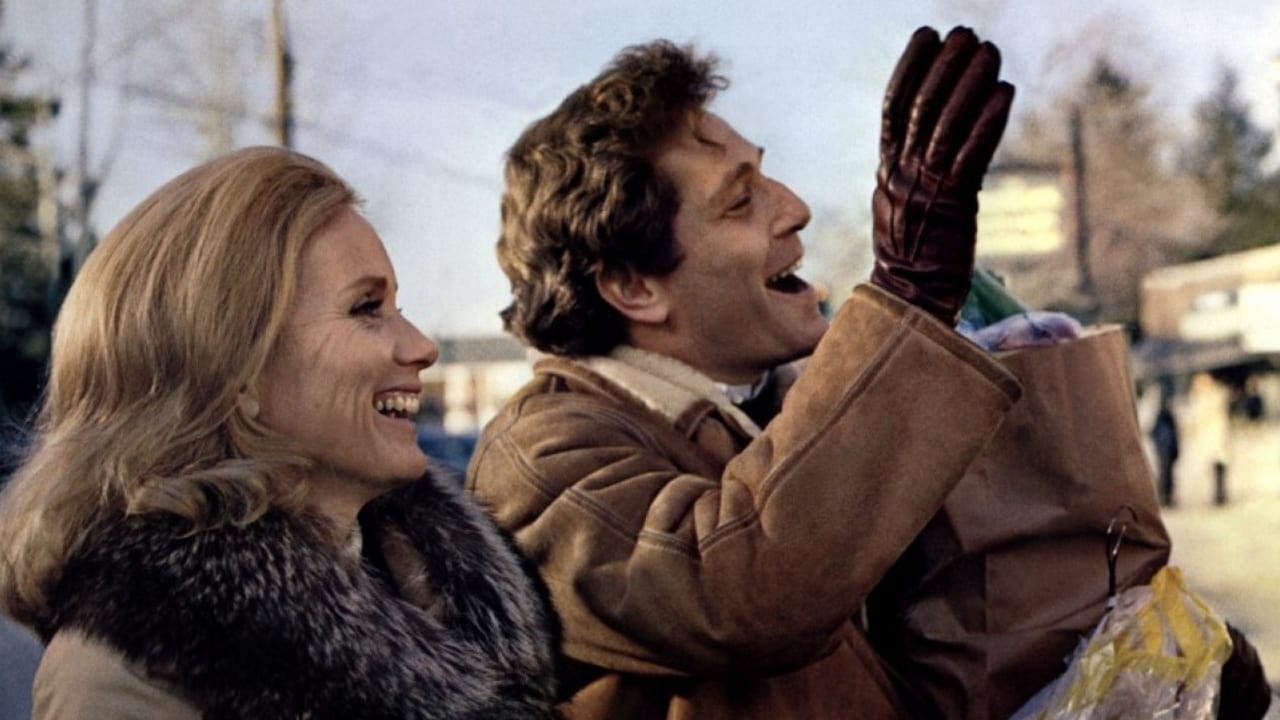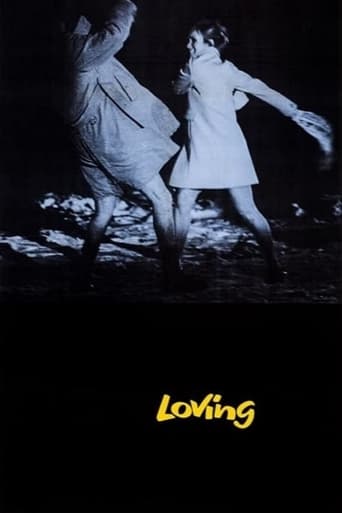

Truly Dreadful Film
... View MoreOne of the best films i have seen
... View Morei know i wasted 90 mins of my life.
... View MoreThis is a must-see and one of the best documentaries - and films - of this year.
... View MoreWho needs blood and guts when you can watch more interesting destructive behavior? George Segal embodies studied amorality perfectly. There is no God, no religion, no moral sensibility, only what I do and what I can get away with. But it's not just George. All the men in the film are just in it for themselves, down to the kvetching neighbor complaining about George's crab-grass. We are a long way from Puritan New England in this cold portrayal of suburban hustle set in Westport, CT. Some of the women, especially Eve Marie-Saint, still think the old rules - middle-class conventions - still have meaning, value, and valor, but not the men and certainly not two of the women (Mistress and Fling for discussion purposes herein). We get no inner life of George, he just communicates his superiority as an artist, his ability to hustle accounts (in a bizarre cameo by Sterling Hayden, who plays an embodiment of Lincoln), and his ability to have a wife, a mistress, and whatever Fling stirs him at the moment, which becomes the essential plot device of this otherwise aimless movie, aimless if you don't see the trainwreck coming at breakneck speed, despite the movie's studied languor. We would have no movie, however, if only George was amoral - and you know George is amoral, that the part was a cakewalk for him, because that is who he is. Yuk! I will certainly research any movie that stars George Segal before deciding how much degradation and loss of tradition I want to experience.Of course, to him and his ilk, there is no other reality. Life is to be lived through their gimlet eyes, and my job is to identify these types early, and thence to avoid them. I am not even going to look up the name of the "party-host husband" who casually schtupes a drunken guest (that would be Fling #2 for George, but he doesn't get to her) while his wife vainly tries to keep the party upscale, only to have her husband tee up live-pornography for his guests. As my secretary says, you can't make this stuff up, and this movie perfectly illustrates what happens when you believe in nothing other than the primacy of your own sexual prowess.Thoroughly distasteful but an essential watch for those who need to understand why we have a new religion in this land, one whose commandments consist of micro-aggression "Shalt-nots," identity politics, and a belief that government must make laws enforcing all this BS, and must take care of us from cradle-to-grave. For those rejecting the traditions of our ancestors, it is George jungle out there unless we abide by our new religion. It's an easy choice for me (the ol' time religion), but not for most, with their obsession with "truth," and hence our new religion. In this religion, all that matters is your posturing, and your obeisances to the identity politic gods (and police), even if the world is falling down around you. I'll take the old-time religion always.Performances are excellent throughout. The children - the poor children: their suffering isn't shown, but it is forboded - are superb. The hard-bitten Mistress, angling for George to divorce, is perfect in her callous disregard for other's feelings. And the two Flings are the cynical embodiment of George - they are also just in it for the momentary pleasure George is living for. In fact, the only moral judgment ever passed in this movie is when Fling #1 (Fling #2 having passed out upstairs where the host gets her) accuses George of being middle-class for wanting his pants back before going back into the house to get food and drink for their outside tryst. Double yuk.But powerful. After traditional religion but before our new Neo-Victorian secular religion enforced by the state (and its high priests), this movie is a must-see for American cultural history.
... View MoreA frank, very adult look at a marriage on the verge of destruction. George Segal is a not so successful graphic artist married to very efficient homemaker Eva Marie Saint. He has his hands full with a wife, a girlfriend, two children, ambivalent clients, and very little money. Segal is exceptional in a role that is really perfect for his particular befuddled angst. Saint is every inch his equal, slowly realizing her husband's unhappiness, but not shy about letting him know the door is always open. Whether she actually will kick him out is debatable. The supporting cast includes David Doyle, Keenan Wynn, Roy Scheider and, briefly, Sterling Hayden. Directed with his usual sure hand by Irvin Kershner from a script by Don Devlin. The expert cinematography is by the great Gordon Willis.
... View MoreEven George Segal himself acknowledged that he had a bland screen presence (Halliwell's Film Guide-1995). Most people wouldn't list him as one of their favorite actors. However, he was definitely okay for this film. Segal's character in this movie is quasi-tragic, a talented commercial artist and a family man, married to adequately attractive Eva Marie Saint and with two cute, wise-cracking daughters. Why he seems to want (or needs) to throw this away for drinking and women makes for somewhat compelling viewing, and leads to a great climax at a party for a lot of sophisticated art types on a very cold winter's night, in which first a lot of drinking and then temptation lead to one of the better conclusions you're likely to see.
... View MoreLOVING is a film for the patient movie buff. It is not a film for those who want to see murders or car crashes every five minutes. It is a maturely-told, sensitively-acted, -written and -directed film about a commercial artist's marital (and extra-marital) entanglements. It relies on character rather than plot to convey its points. All the actors are spotless in their portrayals, especially George Segal and Eva Marie Saint as the artist and his harried wife. It is a film that slowly builds interest in the characters which is amply rewarded for the audience by the film's conclusion. LOVING is a film that will leave you silent at the end, and thinking about it for days afterward.
... View More